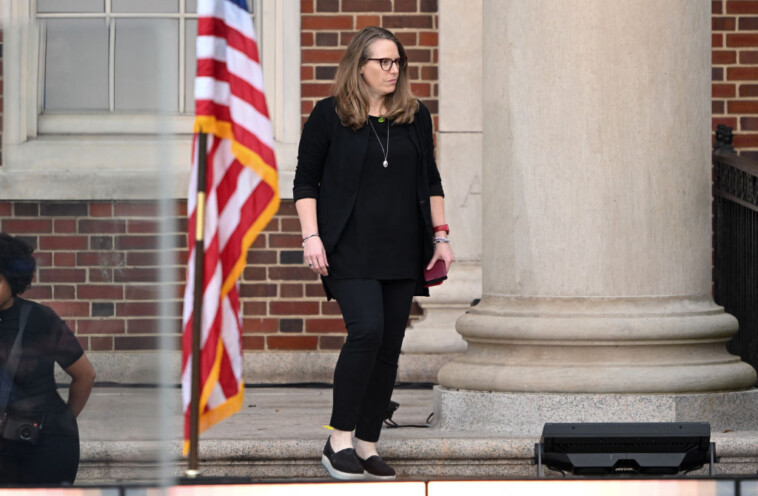Vice President Kamala Harris’ campaign chair Jen O’Malley Dillon blew off criticisms during a recent appearance on the liberal podcast “Pod Save America,” claiming that Harris’ obvious avoidance of tough interviews was just perception driven by “the narrative.”
Dillon joined several of the campaign’s top officials — David Plouffe, Quentin Fulks, and Stephanie Cutter — for their first interview since Harris lost her 2024 White House bid to President-elect Donald Trump, and their post-mortem focused on the failures of the American people to see through media narratives rather than any possible faults in their own candidate or campaign.
WATCH:
Harris campaign chair Jen O’Malley Dillon: “Being up against a narrative that we weren’t doing anything or we were afraid to have interviews is completely bullsh*t, and also, like, took hold a little bit. And we just gave us another thing we had to fight back for that Trump never… pic.twitter.com/sazkll4afT
— Jason Cohen 🇺🇸 (@JasonJournoDC) November 26, 2024
“I do think a narrative, 107 days … two weeks talking about how she didn’t do interviews, which you know she was doing plenty, but we were doing in our own way, we had to be the nominee, we had to find a running mate, and do a roll-out, I mean there was all these things that you kind of want to factor in,” Dillon complained.
CHECK OUT THE DAILY WIRE HOLIDAY GIFT GUIDE
She went on to argue that Trump — who, along with Vice President-elect JD Vance, was doing dozens of rallies and interviews — was not being held to the same standard as Harris, which she said further complicated matters.
“But real people heard, in some way, that we were not going to have interviews, which was both not true and also so counter to any kind of standard that was put on Trump, that I think that was a problem,” she said. “Being up against a narrative that we weren’t doing anything, or we were afraid to have interviews is completely bulls***, and also like took hold a little bit, and we just, it gave us another thing we had to fight back for that Trump never had to worry about.”
Dillon also complained that the questions Harris often got when she did make appearances were frequently “processy,” meaning that they did not do much to help voters get a better view of Harris or her policies.



